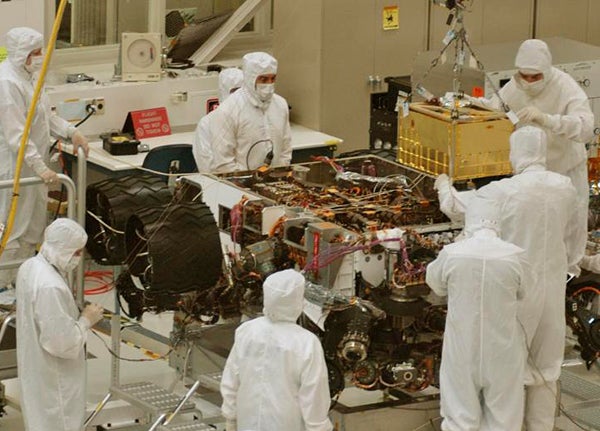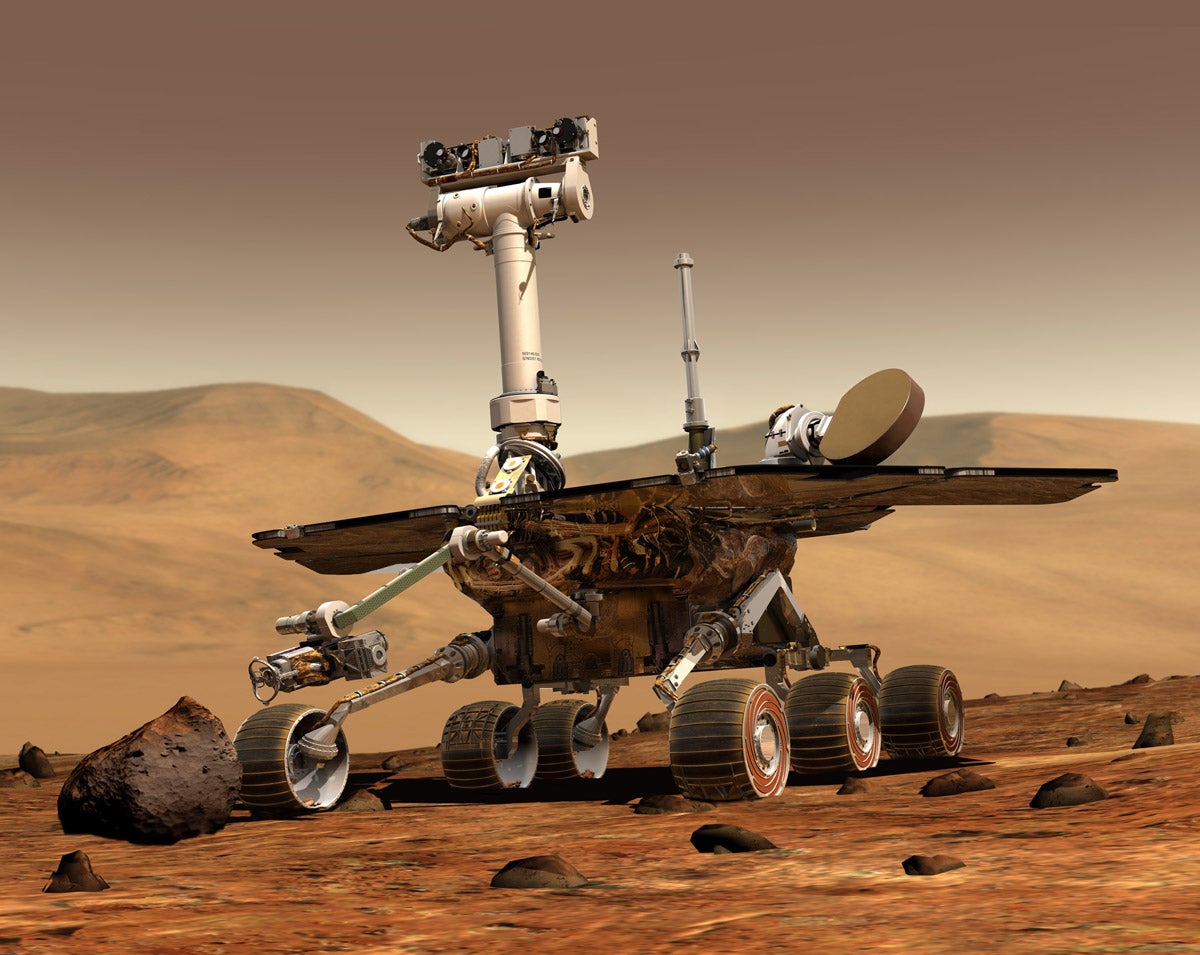
Envision you're on another planet, gradually moving up the side of a mountain for quite a long time, with only residue and rocks for organization.
That is the thing that life resembles for Curiosity, one of the robots with wheels that NASA calls meanderers. Another wanderer, Opportunity, finished its crucial. 13, so Curiosity is presently the main working one remaining on Mars
One year after Curiosity showed up on the red planet, the group at NASA denoted the event by having the meanderer play a melody to itself.
NASA Deputy Chief Technologist Florence Tan thought of the thought, yet she didn't figure individuals would give a lot of consideration. They did, and not in the manner in which she anticipated.
"Individuals were discussing: Poor, poor meanderer. Is it accurate to say that anyone is else crying? That is the saddest birthday tune I've at any point heard."
That is so discouraging, it's singing to itself and can just hear the music resounding through the unfilled Martian scene."
"Cheerful birthday to me, glad birthday to me, I am so desolate, upbeat birthday to me."
"It's truly a lifeless thing, for what reason am I despite everything crying?"
Ashwin Vasavada, venture researcher for Curiosity, said he sort of gets why individuals responded so unequivocally.
"It must be quite desolate where Curiosity is, right now with literally nothing aside from the sound of the breeze and residue blowing around," he said.
Be that as it may, we shouldn't be excessively stressed, Vasavada stated, the people at NASA keep in contact with Curiosity.
"We state 'hello there' to it each morning and give it some gainful activities, so it is very brave, yet they're simply not legitimately around it," he said.
He explained: It's actually few out of every odd morning. Mars has 24.6-hour days, so there are some time contrasts.
Technologist Florence Tan said she has an enthusiastic response when she sees Curiosity. Be that as it may, for her, that feeling is pride.
"At the point when I take a gander at Curiosity, I take a gander at it as, 'I put that on Mars, I did that,' " she said. "It's incredible, and we're getting extraordinary science, and it's likewise promising the following gathering of youngsters to be energized, it's giving individuals a feeling of: I could do this as well."
Here's the backstory on how the wanderer came to play its melody, a story that is grounded in the science it was intended to do:

Interest assists researchers with considering the synthetic substances on Mars. The meanderer gathers up somewhat Martian earth, consumes it to fume, at that point sends the fume to different sensors inside the robot. That is the means by which we discovered Mars has some old compound elements forever, similar to nitrogen and carbon.
The group arranged for a wide range of issues, similar to imagine a scenario where the Martian earth obstructs a funnel.
To evade that issue, specialists customized the robot so the compartments holding the earth shake, and none of the funnels get obstructed. Programming engineer Tom Nolan tried the shaker by having it vibrate. What's more, for some additional enjoyment, he had it vibrate as well as vibrate musically.
"It's doing what the shaker was intended to do, yet in a sort of startling way," he said.
Nolan is Tan's significant other. What's more, as a test in their lab, they made the wanderer play "Twinkle, Twinkle, Little Star" and Beethoven's "Für Elise."
"Everyone was simply twisted around chuckling, they thought this was the most silly thing, a bit of spaceflight equipment that was playing a little melody. I get it's architect humor."
With the goal that's the means by which Curiosity had the option to play a birthday tune to itself.
For what reason did individuals on Earth have such a solid reaction to this birthday melody?
Planetary researcher Tanya Harrison chipped away at Curiosity. She said individuals may particularly relate to wanderers, versus different robots like satellites, since meanderers have 'eyes' and 'arms.'
"You can consider it something that is alive here and there and it's going about as this emissary for us as people on Mars, since we can't arrive ourselves right now."
Harrison likewise took a shot at the past Mars meanderer for NASA. What's more, says a passionate association can be acceptable. A year ago, whenever Opportunity lost contact with Earth, the general population mobilized behind the meanderer to get NASA to spare it.
A great deal of exertion for NASA, as far as subsidizing and what they choose to do, truly relies on what the general population is keen on and occupied with," she said.
Harrison was at the Jet Propulsion Laboratory this month, when NASA put forth one final attempt to connect with Opportunity.
"Everyone went quiet and just paused and watched this little screen where you would see a blip come up in the event that we had heard something from the wanderer, sort of like looking for a heartbeat on a heart screen or something to that effect. It didn't come."
The tremendous response individuals had as far as possible of Opportunity's strategic Mars could influence how NASA considers web based life and commitment for future missions, she said.
The last message Opportunity sent back was a lot of telemetry and force readings, yet individuals grasped an alternate translation: My battery is low, and it's getting dim.
"The way that individuals took that and attempted to transform it into something beautiful originating from this machine on another planet, I think shows the amount we're emoting with it and exemplifying it with feelings," Harrison said.
No comments:
Post a Comment